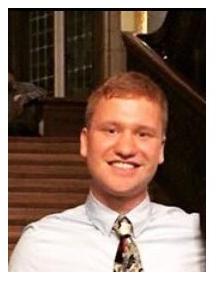Texas Forensic Science Commission to Investigate Bite Mark Evidence
08.21.15
By Matt Kellner

Matt is a paralegal in the Strategic Litigation Department, where he identifies potential test cases, conducts research, and assists the department’s three attorneys with case-related tasks.
Last Friday, the Texas Forensic Science Commission voted unanimously to investigate the integrity and reliability of bite mark comparison evidence. The Commission’s vote followed a written complaint and oral presentation by the Innocence Project’s Strategic Litigation department, which outlined the dearth of scientific support for bite mark comparisons and detailed some of the many miscarriages of justice resulting from the technique’s use. The complaint asked the Commission, as part of its investigation, to conduct an audit into the Texas convictions which have rested on bite marks and to call for a moratorium on the use of such evidence unless and until it can be scientifically validated. The Commission took up the complaint’s call and will begin the process of reviewing bite mark convictions. Commenting on the broad scope of the investigation, Presiding Officer Dr. Vincent DiMaio said, “we’re talking about the whole field, the validity of the field of bite marks.”
The Commission’s decision comes amidst a chorus of voices condemning bite mark comparisons. On Monday, the
Dallas Morning News
published an
editorial
extolling the Commission’s forthcoming bite mark audit. The editorial, which characterized bite mark comparison evidence as “dressed-up guesswork masquerading as expertise,” asserted that the discredited technique “has no place in Texas courtrooms.” In addition, over just the past month,
a senior White House official called for the eradication of bite mark evidence
and a federal court
compared bite mark evidence to astrology
. At the Commission meeting itself, Dr. Nazim Peerwani, a member of the Commission who serves as the chief medical examiner of Tarrant County, Texas, noted that his office has “no respect, absolutely no regard for bite marks.”
Although courts have permitted forensic dentists to testify about bite mark comparisons for decades, there is a startling and complete lack of scientific support for their claims that one can match a suspect’s teeth to an apparent bite mark. As described in the Innocence Project’s complaint and presentation to the Commission, all of the fundamental assumptions underlying bite mark comparisons have never been rigorously validated. For instance, Dr. Mary and Peter Bush of the University of Buffalo School of Dental Medicine have conducted a series of seminal studies that demonstrate that human biting surfaces are not unique and that human skin cannot adequately preserve individual characteristics of one’s teeth, even if those features were unique. The Bushes’ research substantiated the conclusions of the National Academy of Science’s landmark 2009 report,
Strengthening Forensic Science in the United States: A Path Forward
, which determined that “no evidence of an existing scientific basis for identifying an individual [through bite mark comparison] to the exclusion of all others.” The absence of a scientific foundation for bite mark analysis is further compounded by a lack of consistency among its practitioners:
a recent study
by two forensic odontologists, Drs. Adam Freeman and Iain Pretty, revealed that bite mark analysts disagreed widely when asked whether patterned injuries are even bite marks.
All these factors have contributed to at least 24 known wrongful convictions or indictments on the basis of bite mark evidence, a staggering statistic considering the relatively infrequent use of bite mark comparison evidence. The problems of bite mark analysis are especially pertinent for Texas, where two innocent men,
Calvin Washington
and
Joe Sidney Williams
were convicted using faulty bite mark comparisons. In 1986, the men were convicted of a rape and murder based largely on the testimony of a forensic odontologist that Mr. Williams’ teeth were the source of a bite mark on the victim. The charges against Mr. Williams were dismissed in 1993. Mr. Washington, however, remained imprisoned until DNA evidence excluded both him and Mr. Williams from the crime in 2001. Friday’s presentation cited another specious conviction in Texas: that of Steven Chaney, an Innocence Project client on whose behalf the complaint was filed. Mr. Chaney was convicted for a murder based almost entirely on a bite mark comparison conducted by two of the odontologists involved in Washington and Williams’ case. Mr. Chaney has been incarcerated for nearly three decades despite significant evidence of his innocence.
Since its inception, the Commission has enacted several progressive measures in an effort to ensure the reliability of forensic evidence. Though the newest audit will take several months or even years to complete—in 2013, the Commission undertook an audit of similarly problematic hair microscopy evidence that is still underway—its potential is immense to uncover other unsafe and unconstitutional convictions, provide justice to people like Mr. Chaney, and lay the foundation for a moratorium on bite mark evidence.

Leave a Reply
Thank you for visiting us. You can learn more about how we consider cases here. Please avoid sharing any personal information in the comments below and join us in making this a hate-speech free and safe space for everyone.